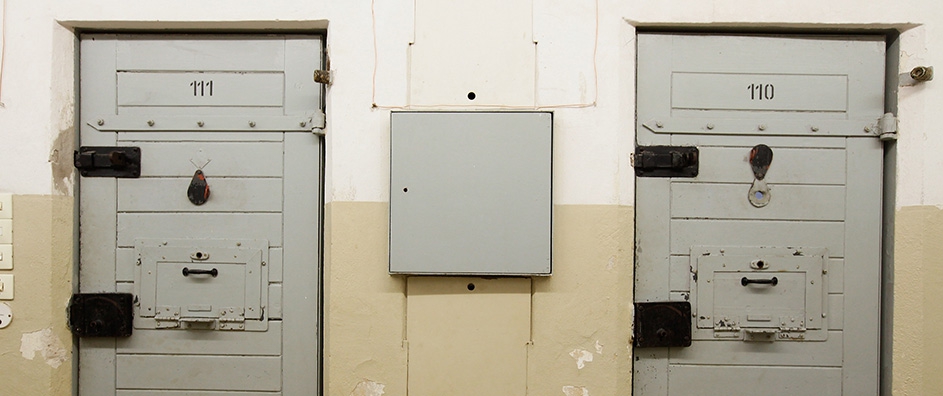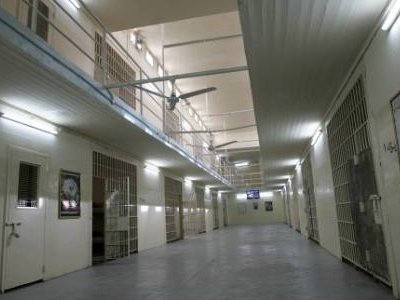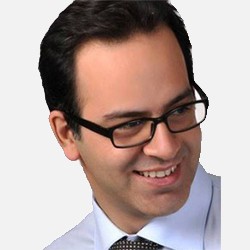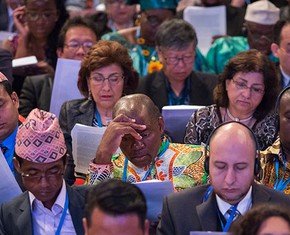The views expressed in our content reflect individual perspectives and do not represent the authoritative views of the Baha'i Faith.
[Translated from Persian By Dr. Nizam Missaghi]
On February 6th, 2014, President Obama addressed the annual National Prayer Breakfast gathering in Washington DC. Among the many issues he raised, he spoke about the importance of protecting human rights around the world. He said, “More broadly, I’ve made the case that no society can truly succeed unless it guarantees the rights of all its peoples, including religious minorities, whether they’re Ahmadiyya Muslims in Pakistan, or Baha’i in Iran, or Coptic Christians in Egypt.” His remark on the members of the Baha’i faith in Iran especially rings true as their rights are violated daily and legal due process for them continues to be lamentably defective. The following Open Letter was written by a young Baha’i who serves as an example of perseverance and positivity in the face of adversity.
* * * * * * *
Before I set out to write these words, I pondered on a befitting title. Several titles such as a screed, a petition, a complaint, or a plea came to mind, but none would serve to capture the purpose I seek. I subsequently decided to leave this letter untitled. Then I wondered to whom I should address these words: the judge, the prosecutor, my friends, or even myself. My conclusion was to not limit the audience to any particular person. This letter should speak to anyone who chooses to read it. I firmly believe that such letters will find their own readership, and, through the interaction of the letter and its readers, new understanding will emerge. Therefore, if you are in possession of this letter, rest assured that these few words, laden with a myriad dreams, are meant exactly for you, the reader.
My name is Sarang Ettehadi. I am 35 years of age. I reside in Tehran, Iran.
I am an adherent of the Baha’i faith and live with my wife, Nasim. I do not know how much longer I get to live in the comfort of my own home. A few weeks ago, a judge handed me a five-year prison sentence. My wife also has received her sentence: one year in prison. I was convicted, more or less, of the same “crime” for which many prisoners are, even as I write these words, serving time in Iranian prisons: “Acting against national security,” “participation in an illegal organization,” “propaganda against the regime.”
Even though I have never committed any such crime, my purpose for writing these words is not to attest that I have never acted against the regime or national security. I am not out to prove my innocence in the court of public opinion. This is intended to be an open letter and not the transcript of a hearing, which, in my case, occurred in absentia. This is a letter by a citizen with a hefty sentence; one who must spend five precious years of his life in a place outside of his home; a place called prison.
I am among the many thousands of Baha’is, who, with the dream of building a glorious future for Iran, chose to call Iran our home, did not leave my homeland, and persevered, through the power of love and hope, despite adversity. Even though, in my home, being a Baha’i is equivalent to accepting a wave of discrimination, injustice, prison, execution, deprivation from education, unemployment, confiscation of property, and even desecration of the graves of loved ones, my love for this sacred land does not fade in the face of these deep wounds. In the eyes of an esteemed judge, I am among the many thousands of Baha’is whose participation in a devotional prayer meeting is tantamount to “activity in an illegal organization” and whose consorting with non-Baha’i friends is equivalent to “promoting the Baha’i religion” and “propaganda against the regime.”
I know full well that such disconsolate description of injustice is not limited to the Baha’is in Iran and applies to many other dissidents who have chosen to stay in their homeland and persevere with the dream of brighter days on the horizon. None of them belong behind bars or in solitary confinement. Perhaps this open letter is representative of their collective voices; the voices of those who, in their own homeland, are denied their most basic right of freedom and equality.
I am convicted of propaganda against the regime and membership in the Baha’i faith. If the appellate court, whose date is fast approaching, confirms my sentence, I will have to report to prison to serve for five years. Five years behind bars means one thousand eight hundred and twenty five sunrises and sunsets. In the next few days my fate will be known as to how many sunrises and sunsets I must be deprived from witnessing.
Perhaps if this letter reaches those who can fathom the meaning of these words, justice might be served in the appellate court.
I firmly believe that no innocent man should ever have to endure prison. The bitter chronicle of events that I have experienced, aside from religion, language, or ethnicity, must never afflict any other human being. I love freedom and have chosen to remain in my homeland. I may write these words from the depths of darkness, but my heart is illumined with the warmth of tomorrow’s sun. I believe that if we take that first step and demand our share of justice today, our prisons of tomorrow may be emptied of those innocent souls, of any creed or ethnicity, and no one would have to bear saying farewell to the warmth of his own home or the embrace of his loved ones to serve an unjust sentence. But if we sit in silence and begin to count the new “guests” that get added daily to the ranks of innocent prisoners behind bars, perhaps today’s reader of this letter will be the author of the next such open letter; a letter with a disconsolate opening; an opening that pains my heart and goes, more or less, like the following:
My name is Sarang Ettehadi. I am 35 years of age. I reside in prison.

















Comments
Sign in or create an account
Continue with Googleor